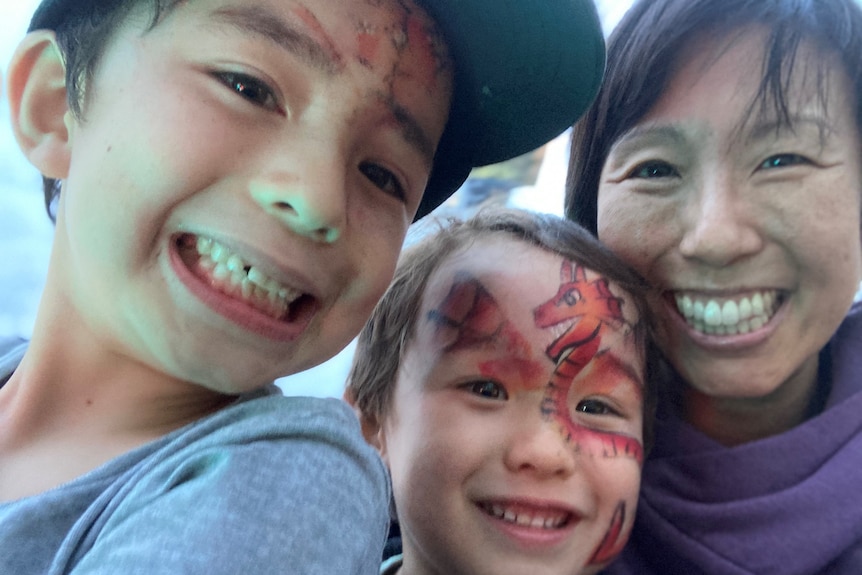The end is near.
Soon, lockdown will be over and the kids will be back in their classrooms after three months of homeschooling, home-holidaying, working-from-home hell.
The upshot is that, once we’ve returned to the normally exhausting weekly grind, I plan on pencilling in an emotional collapse.
I suspect I’m not alone. My husband and I have homeschooled two kindy boys this year and last year because of the pandemic.
Frankly, despite our best efforts, and those of their teachers, the kids have learned bugger-all — except how to form a digital crack habit with all the screen-based learning and edutainment (I see you, ABC Reading Eggs).
All things considered, that’s quite the win. I’ve long been hooked on achievement.
It’s normal to feel satisfied with having done a good job but I thrive just a little too much on being productive. Which is a clue that, for me, accomplishment is a shortcut to existential validation.
But it’s not just me. As Guardian journalist Bridie Jabour writes in Trivial Grievances: On the contradictions, myths, and misery of your 30s:
“We want our lives to mean something, and lots of us don’t have religion or lifelong communities to feel tethered to anymore. We have moved more to being defined by what we have achieved, even if what we have achieved is three 10-kilometre runs in a week.”

Jabour observes that plenty of us look to our individual accomplishments for a sense of identity, as opposed to something larger than ourselves — spirituality, for instance, or community.
This doesn’t mean that this isn’t an issue for people of faith. I should know, since I count myself among them.
All of us wrestle with the fear that our significance is never a given. Rather, we expect to secure our worth through our work.
If that’s how we operate when it comes to our own endeavours, imagine what we project on to the kids we’re home-schooling.
And, so, a bit of perspective is in order if we’re to get out of lockdown with our relationships, families, mental health and some semblance of wellbeing intact.
In a bunch of unpaid roles
First, especially for those of us with younger kids, it wouldn’t hurt to recognise that we haven’t so much been “homeschooling” as doing a particularly intense version of personal coaching.
The kind that’s all-consuming, unpaid — and, on top of any other paid work on your plate, with a “client”, no less, who knows exactly how to push your buttons and who you feel biologically compelled to not screw up for the rest of their lives — hence, the emotionally draining effort to keep your cool despite extreme provocation.
That’s pressure.
We tend to put our needs last
Second, it’s worth watching out for the parent-as-martyr reflex: In this case, the tendency to sacrifice yourself on the altar of your kid’s education.
Mums might be particularly prone to this since they’re over-represented in part-time paid employment and, so, the story goes, can work more “flexibly” to juggle work and family life.
Then there’s the fact that, if women in general are socialised to put others before themselves, then motherhood is next-level self-sacrifice.
For example, one of my friends experimented with homeschooling her primary school child before the start of her own day working from home.
When she told me, a wave of guilt, admiration and (honestly) green-eyed envy washed over me at the initiative and energy that she managed to summon up from the depths of exhaustion.
But we can choose to not nail everything
Which leaves me with option three: Resisting the urge to be defined by our homeschooling success — or lack thereof. In fact, I have a plan for surviving these last weeks of homeschooling before the official return to school on October 18.
On day one of term, I’ll acknowledge the angst I feel at the minimal efforts we’ll undoubtedly make, and then I’ll make the conscious choice to move on with my day. And I’ll do that the next day, and the day after that.
I know the achievement addict in me will flinch at the rising number of incomplete homeschooling activities. But so what? Reality is far more than the sum of my individual efforts.
The homeschooling-parent-as-personal-coach or mum-as-martyr both labour away at an impossible task.
They attempt to reconcile the irreconcilable gap between the ideal — acing home-learning as well as our own work — and the reality of just making it through the days, the weeks, the months of lockdown.
Giving myself permission to go easy on myself right now is not going to solve all our problems with work.
But my “failure” to successfully homeschool my kids may weaken the link between work and worthiness that I’ve long believed in.
At least, that’s my hope.
Justine Toh is senior fellow at the Centre for Public Christianity and the author of Achievement Addiction.